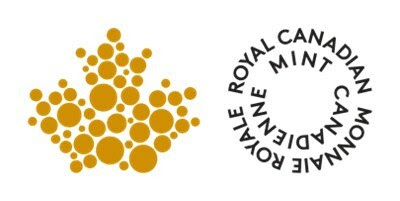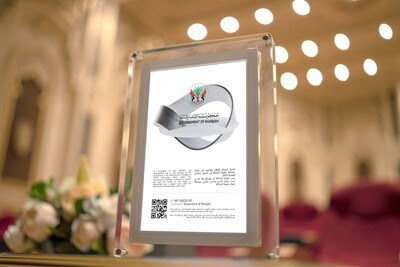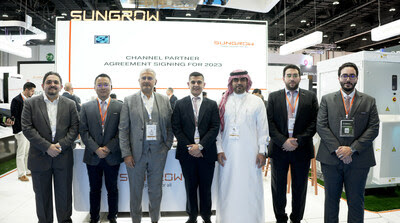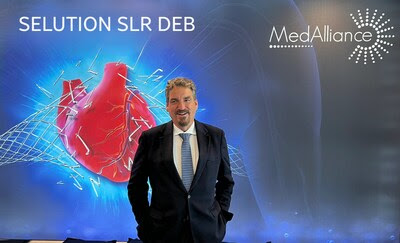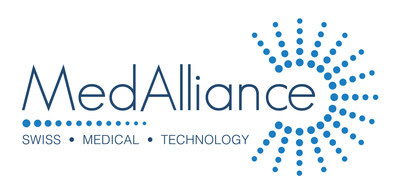The Committee on Non-Governmental Organizations continued its 2023 session today, deferring requests by one entity for special consultative status with the Economic and Social Council, while taking note of 527 new and 1 deferred quadrennial reports submitted by groups already in consultative status.
The Committee deferred its consideration of 18 newly submitted quadrennial reports, as well as 17 reports previously deferred from past sessions, as members requested further information from those organizations about, among other items, details of their activities, partners, expenditures and sources of funding for the periods under review.
The 19-member Committee considers applications for consultative status and requests for reclassification submitted by non-governmental organizations (NGOs). Once an application has been reviewed and approved by the Committee, it is considered recommended for consultative status. Organizations which were granted general and special status can attend meetings of the Council and issue statements, while those with general status can also speak during meetings and propose agenda items. Organizations with roster status can only attend meetings.
The Committee on Non-Governmental Organizations will meet again at 10 a.m. on Monday, 30 January, to continue its session.
Review of Quadrennial Reports
The Committee first took note of 527 new quadrennial reports for the period 2018 to 2021 — containing submissions by non-governmental organizations in consultative status with the Economic and Social Council — and deferred 18 reports, as Member States posed questions about them. Those organizations were as follows:
Report E/C.2/2023/CRP.5: 15 non-governmental organizations: 1M1B Foundation; AAINA; AIM Education & Research Society; ANO “Organization” “Vector of Friendship”; ANPAM – Associazione Nazionale Produttori Armi e Munizioni Sportive e Civili; ASPAM Foundation; AWWA LTD; Action for Development (Suisse); Africa Centre for Citizens Orientation; Africa Network for Animal Welfare (ANAW); African Centre for Advocacy and Human Development; African Centre for the Constructive Resolution of Disputes Education Trust; African Cultural Promotions Inc; African Heritage Foundation Nigeria; and African Hope Committee Inc. 2018 – 2021.
Report E/C.2/2023/CRP.6: 15 non-governmental organizations: African Services Committee, Inc.; African Views Organization a NJ Nonprofit Corporation; African Youth Movement; African Youths Initiative on Crime Prevention; Afro-European Medical and Research Network; Agence d’aide a la cooperation technique et au developpement; Agencia Latinoamericana de Informacion (ALAI); Ain o Salish Kendra – Law and Mediation Centre; Akshar Foundation; Al Mezan Centre for Human Rights; Al-Anwar Al Najafia Foundation for Culture and Development; Al-khoei Foundation; All-Russian Society of Disabled People; All-Russian public organization “Russian Public Intstitute of Electoral Law”; and Alliance Defending Freedom.
Report E/C.2/2023/CRP.7: 15 non-governmental organizations: Alut – The Israeli Society for Autistic Children; Aman against Discrimination; Amazon Conservation Team; American Psychiatric Association; American Society of Criminology; American Society of Safety Engineers; Americans for Democracy & Human Rights in Bahrain Inc; Amity Foundation; Amman Center for Human Rights Studies; Anti-Slavery International; Antioch Christian Centre; Aravind Foundation; Asia Pacific Forum on Women, Law and Development; Asian Institute of Transport Development; and Asian Legal Resource Centre.
The representative of China asked for details regarding the report prepared for the United Nations Entity for Gender Equality and the Empowerment of Women (UN-Women) by the Amity Foundation and the civil society events organized by the Asia Pacific Forum on Women, Law and Development.
Report E/C.2/2023/CRP.8: 15 non-governmental organizations: Asociación Cubana de Producción Animals; Asociación Española para el Derecho Internacional de los Derechos Humanos AEDIDH; Asociación Nacional de Estudiantes de ingenierías Industrial, Administrativa y de Producción; Asociación de Pedagogos de Cuba; Asociatia Obsteasca “Promo-LEX”; Asociatia Pakiv Romania; Assembly of First Nations – National Indian Brotherhood; Associacao de Mulheres Contra a Violencia; Association ALKHAYR pour le developpement en Mauritanie; Association for Aid and Relief, Japan (AAR); Association for Defending Victims of Terrorism; Association of Medical Doctors of Asia; Association of Presbyterian Women of Aoteaora, New Zealand; Association on sustainable development and investment climate improvement, uniting investors and creditors “World Organization for Development”; and Associazione Comunita Papa Giovanni XXIII.
Report E/C.2/2023/CRP.9: 15 non-governmental organizations: Associação Brasileira Interdisciplinar de AIDS; B.C. Aboriginal Network on Disability Society; BADIL Resource Center for Palestinian Residency and Refugee Rights; Baha’i International Community; Bahjat Al-Baqir Charity Foundation; Bangladesh NGOs Network for Radio and Communication; Baptist World Alliance; Barbra Schlifer Commemorative Clinic; Batey Relief Alliance Inc; Beyond Beijing Committee; Biofutura, Asociación Civil; Black Alliance for Just Immigration; Board of Certified Safety Professionals; Brahma Kumaris World Spiritual University; and British Columbia Council for International Cooperation.
Report E/C.2/2023/CRP.10: 15 non-governmental organizations: Buddhist Tzu Chi Foundation; Bufete de Estudios Interdisciplinarios AC; Bundesarbeitsgemeinschaft der Senioren-Organisationen; C-Fam, Inc; CHIRAPAQ – Centro de Culturas Indígenas del Perú; CIBJO – The World Jewellery Confederation; CLAN (Caring & Living as Neighbours) Incorporated; Cameroon Association for the Defence of the Victims of Accident; Canadian Federation of University Women; Canadian Research Institute for the Advancement of Women; Caritas in Veritate International USA; Casa Generalizia della Societa’ del Sacro Cuore; Catholic Organization for Relief and Development Aid; Catholics for Choice; and Caucasus Environmental NGO Network.
Report E/C.2/2023/CRP.11: 15 non-governmental organizations: Cell of Alternative Youth Activities; Center for China & Globalization Limited; Center for Constitutional Rights Inc.; Center for Global Nonkilling; Center for Human Rights Studies of Mofid University; Center for Policy Studies; Center for Women and Development; Center of Political Analysis and Information Security; Centre for Gender Justice and Women Empowerment; Centre for Public Health; Centre pour les Droits Civils et Politiques — Centre CCPR; Centro de Promoción y Defensa de los Derechos Sexuales y Reproductivos; and Child Care Consortium; Childhood Cancer International; and Children of the Caribbean Inc.
Report E/C.2/2023/CRP.12: 15 non-governmental organizations: China Association for International Science and Technology Cooperation; China Disabled Person’s Federation; China Education Association for International Exchange; China International Council for the Promotion of Multinational Corporations; China Society for Human Rights Studies (CSHRS); The China Water Engineering Association; Chinese People’s Association for Peace and Disarmament; Church World Service; City2000 Youth Action International; Comite National d’Action pour les Droits de l’Enfant et de la Femme; Commonwealth Association of Surveying and Land Economy; Commonwealth Human Ecology Council; Commonwealth Medical Trust; Community Agenda for Peace Ltd/Gte; and Community Development Volunteers for Technical Assistance.
Report E/C.2/2023/CRP.13: 15 non-governmental organizations: Community Restoration Initiative Project; Conectas Direitos Humanos; Conference of Non-Governmental Organizations in Consultative Relationship with the United Nations; Consejo de Iglesias de Cuba; Consortium for Sustainable Urbanization Inc; Cooperation and Participation in Overseas NGOs; Coordinating Committee for International Voluntary Service; Cordoba Peace Institute – Geneva; Corporación Equipo Colombiano Interdisciplinario de Trabajo Forense y Asistencia Psicosocial; Criminologists Without Borders Inc; Culture and Development East Africa; Curia Generalizia Agostiniana; Damanhur Education; Danske Handicaporganisationer; and Daughters of Virtue and Empowerment Initiative.
Report E/C.2/2023/CRP.14: 15 non-governmental organizations: Dayemi Complex Bangladesh; Delta Sigma Theta Sorority, Inc.; Dharma Drum Mountain Buddhist Association; DiploFoundation; Domestic and Foreign Missionary Society of the Protestant Episcopal Church in the United States of America; Dominican Leadership Conference; Dominicans for Justice and Peace – Order of Preachers; Donne in Rete contro la Violenza – ONLUS; Down Syndrome International; Drug Free America Foundation; EKTA; EUROMIL EV; EURORDIS European Organisation for Rare Diseases; Earth Push ltd/gte; and East-West Management Institute.
Report E/C.2/2023/CRP.15: 15 non-governmental organizations: Eastern Sudan Women Development Organization; Eco-Accord – Center for Environment and Sustainable Development; Edfu Foundation Inc.; Educate a Child in Africa; Educational Foundation for African Women; Educators without Borders; Egyptian Organization for Human Rights; End Child Prostitution, Child Pornography and Trafficking of Children for Sexual Purposes, Inc.; Environmental Justice Foundation Charitable Trust; EquallyAble Foundation; Ertegha Keyfiat Zendegi Iranian Charitable Institute; Escuela Cultura de Paz; Ethiopia Africa Black International Congress Church of Salvation; Euro Atlantic Diplomacy Society Association; and European Region of the International Lesbian and Gay Federation.
Report E/C.2/2023/CRP.16: 15 non-governmental organizations: European Union of Women; Ewiiaapaayp Band of Kumeyaay Indians; Excellent World Foundation LTD/GTE; Eşit Haklar İçin İzleme Derneği; F N Forbundet; FSD Fahrzeugsystemdaten GmbH; Faithful Covenant Foundation; Families of Victims of Involuntary Disappearance (FIND); Families of the Missing; Family Africa; Family Development and Samaritan Foundation, Inc.; Family Health Association of Iran; Family Research Council; Farasooye Taaly Institute; and Federación de Mujeres y Familias de Ámbito Rural.
The representative of China raised a question about the sources of funding of Families of the Missing.
The representative of Armenia raised a question about the details of Government funding received by Eşit Haklar İçin İzleme Derneği.
Report E/C.2/2023/CRP.17: 15 non-governmental organizations: Federation of National Representations of the Experiment in International Living, The; Federation of Western Thrace Turks in Europe; Federation of Women Lawyers in Kenya; Flora Tristan Peruvian Women’s Center; Fondation CIOMAL de l’Ordre de Malte (Campagne internationale de l’Ordre de Malte contre la lèpre); Fondazione Cassa di Risparmio di Torino; Free World Foundation (FWF); Freehearts Africa Reach Out Foundation; Friends World Committee for Consultation; Friends of Angola; Fundacion Migrantes y Refugiados sin Fronteras; Fundacion Pro Humanae Vitae; Fundacion Teleton Mexico AC; Fundacion para Estudio Investigacion de la Mujer; and Fundación Contemporánea.
The representative of Armenia raised a question about the staff and activities of the Federation of Western Thrace Turks in Europe.
Report E/C.2/2023/CRP.18: 15 non-governmental organizations: Fundación Descúbreme; Fundación Multitudes; Fundación ONCE para la Cooperación e Inclusión de Personas con Discapacidad; Future Hope International; Féderation Européenne de la Manutention; Fédération Européenne des Femmes Actives en Famille; GAHT-US Corporation; General Forum of the Arabic and African Non-Governmental Organizations; Generation Initiative for Women and Youth Network; Giving Life Nature Volunteer; Global Alert for Defence of Youth and the Less Privileged; Global Alliance Against Traffic in Women; Global Campaign for Education; Global Dairy Platform, Inc.; and Global Dialogue Foundation Australia Limited.
Report E/C.2/2023/CRP.19: 15 non-governmental organizations: Global Empowerment Movement Corporation; Global Forum for Media Development; Global Housing Foundation (GHF); Global Initiative for Economic, Social and Cultural Rights; Global Network of Sex Work Projects Limited; Global Utmaning; Global Voices; Goodness and Mercy Missions Common Initiative Group; Grail, The; Grassroots Organisations Operating Together in Sisterhood; Green Planet; Greenpeace International; Groots Kenya Association; Grupo de Mujeres de la Argentina – Foro de VIH, mujeres y familia; and Guerrand Hermes Foundation for Peace.
The representative of China raised a question about the scholarship programme offered by Global Voices.
Report E/C.2/2023/CRP.20: 15 non-governmental organizations: Guild of Service; Hamkkehaneun Sarangbat Corporation; Hamraah Foundation; Hape Development & Welfare Association; Hardwired, Incorporated; HaritaDhara Research Development and Education Foundation; Hawa Society for Women; Hellenic Association of Political Scientists; High Security Newplate Limited; Hiranmoy Das Gupta Foundation; Hope Ek ASHA; House of Jacobs International; Human Life International, Inc.; The Human Resource Development Foundation; and Humanitarian OpenStreetMap Team United States Incorporated.
The representative of Armenia raised a question about the Human Resource Development Foundation’s refugee support centres.
Report E/C.2/2023/CRP.21: 15 non-governmental organizations: Humanity First; Huqooq-ul-Ebad Development Foundation; IBON.International Foundation Inc.; IDPC Consortium; IFENDU for Women’s Development; INTERSOS Humanitarian Aid Organization; IPAS; Idheas, Litigio Estratégico en Derechos Humanos, Asociación Civill; Il Cenacolo; Imam Al-Sadr Foundation; Imam Ali’s Popular Students Relief Society; Indonesian Child Welfare Foundation, The; Ingenieurs du Monde; InnerCity Mission for Children; and Women’s International Peace Centre.
The representative of Cuba raised a question about Il Cenacolo’s activities for poverty reduction.
Report E/C.2/2023/CRP.22: 15 non-governmental organizations: Insamlingsstiftelsen Kvinna till Kvinna; Institut International pour les Droits et le Développement; Institute for Advanced Sustainability Studies e.V. (IASS); Institute for Economics and Peace Limited; Institute for Multicultural Counseling and Education Services, Inc.; Institute of Global Education; Instituto da Criança; Inter-European Parliamentary Forum on Population and Development; International Academy of Environmental Sanitation and Public Health; International Association for Human Values; International Association of Lions Clubs; International Association of Ports and Harbors; International Association of Y’s Men’s Clubs; International Blue Crescent Relief and Development Foundation; and International Cable Protection Committee Limited.
The representative of Armenia raised a question about grants received by International Blue Crescent Relief and Development Foundation from the Government.
Report E/C.2/2023/CRP.23: 15 non-governmental organizations: International Career Support Association; International Center for Research on Women; International Center of the Roerichs; International Centre for Environmental Education and Community Development; International Civil Society Centre: convening capacity-building research gGmbH; International Coastal and Ocean Organization; International Commission on Irrigation and Drainage; International Committee For Peace And Reconciliation; International Confucian Association; International Cooperative Alliance; International Eurasia Press Fund; International Federation of Settlements and Neighbourhood Centres; International First Aid Society; International Food and Beverage Alliance (IFBA); and International Fund for Animal Welfare.
The representative of Armenia raised a question about International Eurasia Press Fund’s peace and reconciliation activities.
Report E/C.2/2023/CRP.24: 15 non-governmental organizations: International Higher Education Academy of Sciences; International Institute for Non-Aligned Studies; International Investment Center; International Justice Resource Center, Inc.; International MotherBaby Childbirth Organization Inc.; International Network for Sustainable Energy; International Organization of Supreme Audit Institutions; International PEN; International Partnership for Human Rights; International Prison Chaplains’ Association; International Psychoanalytical Association Trust; International Public Organization “Sovereign Knightly Order of Christ the Savior”; International Relations Students’ Association of McGill University; International Society for Augmentative and Alternative Communication; and International Society of Doctors for the Environment.
The representative of China raised a question about the countries that International Justice Resource Center, Inc. operates in.
Report E/C.2/2023/CRP.25: 15 non-governmental organizations: International Union of Psychological Science; International Women’s Forum, Inc.; International Women’s Peace Group Corporation; International Women’s Year Liaison Group; International Youth Aid Council; Internationale Romani Union (IRU); Internet Society; Interregional Public Charitable Organization of Assistance to Persons with Disabilities “SAIL OF HOPE”; Inwelle Study and Resource, Centre; Iran Human Rights Documentation Center; Iranian Association for United Nations Studies; Italian Association for Women in Development; JMJ Children’s Fund of Canada; Jameh Ehyagaran Teb Sonnati Va Salamat Iranian; and Japanese Association of International Women’s Rights (JAIWR).
Report E/C.2/2023/CRP.26: 15 non-governmental organizations: John D. and Catherine T. MacArthur Foundation; Jssor Youth Organization; Kedner Stiven Foundation, Inc; Keystone Human Services International; Khiam Rehabilitation Center for Victims of Torture; Khubaib Foundation; Kids First Fund; Kitakyushu Forum on Asian Women (KFAW); Konrad-Adenauer-Stiftung e.V.; Korea Center for United Nations Human Rights Policy; Korea Differently Abled Federation; Korea Freedom Federation; Korea International Volunteer Organization (KVO); Korea LOHAS Association; and Korea NGO Council for Overseas Development Cooperation.
The representative of China raised a question about Korea Freedom Federation’s anti-poverty activities.
The representative of Cuba asked a question about Konrad-Adenauer-Stiftung e.V.’s offices in Latin America and the Caribbean.
Report E/C.2/2023/CRP.27: 15 non-governmental organizations: Kulturverein — IDEA Society; Kuwait Society for Human Rights; LGBT Denmark — The National Organization for Gay Men, Lesbians, Bisexuals and Transgendered People; Labour, Health and Human Rights Development Centre; LatCrit; LatinoJustice PRLDEF; Leadership Watch; League of European Research Universities (LERU); Lebanese American Renaissance Partnership, Inc.; Leonard Cheshire Disability; Liberians United to Expose Hidden Weapons; Lotus World; Maharat Foundation; Majlis Kanser Nasional; and Malteser International e.V.
Report E/C.2/2023/CRP.28: 15 non-governmental organizations: Management Sciences for Health, Inc.; Mar Adentro de México A.C.; Martin und Gerda Essl Sozialpreis gemeinnützige Privatstiftung; Maryknoll Fathers and Brothers; Maryknoll Sisters of St. Dominic, Inc.; Media Foundation for West Africa; Medical Aid for Palestinians (MAP); Medico International; Mednarodni Inštitut za Bližnjevzhodne in Balkanske Študije; Mennonite Central Committee; Mental Disability Rights International; Migrant Forum in Asia (MFA) Inc.; Mines Advisory Group; Mobility International USA; and More Trust.
Report E/C.2/2023/CRP.29: 15 non-governmental organizations: Mothers Pride and Development Initiative; Movimento Italiano Casalinghe; Movimiento Manuela Ramos; Mujer para la Mujer A.C.; Murna Foundation; Muslims for Progressive Values; N3tsp4rk3rRef; NIGH World; Nation Builders Organisation; National Assembly of Youth Organizations of the Republic of Azerbaijan (NaYORA); National Association of Vocational Education of China; National Rural Support Programme; Native American Rights Fund; Nazra for Feminist Studies; and Neighbour Organization Nepal (NEO-Nepal).
The representative of Armenia raised a question about the sources of funding received by the National Assembly of Youth Organizations of the Republic of Azerbaijan (NaYORA).
E/C.2/2023/CRP.30: 15 non-governmental organizations: Netherlands Centre for Indigenous Peoples (NCIV); New South Wales Council for Civil Liberties; Nigerian Association of Commercial Commuters; Nobel Laurate Mother Teresa Charitable Trust; North Indian Educational Trust; OIPA — Organizzazione Internazionale Protezione Animali; ONG Kala Geneve International; Ohaha Family Foundation; Operation HOPE Inc; Operation Smile, Inc.; Operation Underground Railroad Inc; Ordem dos Advogados do Brasil Conselho Federal; Organisation Européenne des Radioamateurs (EURAO); Organisation internationale pour les pays les moins avancés (OIPMA); and Organization for Defending Victims of Violence
Report E/C.2/2023/CRP.31: 15 non-governmental organizations: Otro Tiempo México, Asociación Civil; OutRight Action International; Oxfam International; PECB (Professional Evaluation & Certification Board — Educational & Welfare Society); Pace University; Pacific Women’s Watch (New Zealand); Pak Women; Pakistan Institute of Legislative Development And Transparency (PILDAT); Pakistan Youth Organization; Parliamentarians for Global Action; Pars Non Trading Development Activists Co.; Participatory Rural Development Society (PRDS); Paryavaran Mitra, Thaltej Ahmedabad; PathFinders Justice Initiative, Inc.; and Patiala Foundation.
Report E/C.2/2023/CRP.32: 15 non-governmental organizations: Patriotic Vision; Peace Boat; Perkins School for the Blind; Personhood Education; Pew Environment Group; Physicians for Social Responsibility; Platform for International Cooperation on Undocumented Migrants; Prahar; Pramacare; Presbyterian Church (USA); Presbyterian Women in the Presbyterian Church (U.S.A.), Inc.; Proslavi Oporavak; Public-Private Alliance Foundation; Queensland Advocacy Incorporated; and Raad Rehabilitation Goodwill Complex.
Report E/C.2/2023/CRP.33: 15 non-governmental organizations: Radha Soami Sat Sang Beas; Rambhau Mhalgi Prabodhini; Reach Out (REO) “N.G.O.”; Reachout and Smile Initiative for Social Empowerment; Real Women of Canada; Recreation Vehicle Industry Association, Inc.; Red Dot Foundation; RefugePoint, Inc.; Rehabilitation International; Rehabilitation International – Arab Region; Reprieve; Research and Development Centre, Nepal; Reyada for Capacity Building Studies & Consultations; Right Livelihood Award Foundation; and Rissho Kosei-kai.
Report E/C.2/2023/CRP.34: 15 non-governmental organizations: Rooftops Canada; Rozan; Réseau Océan Mondial; SDSN Association, Inc.; Samaj Kalyan Unnayan Shagstha; Samuel DeWitt Proctor Conference, Inc.; Save Cambodia; Save the Climat; School Sisters of Notre Dame; Secure World Foundation; Self-Help Association for Rural people through Education and Entrepreneurship; Semilla Warunkwa; Sewa Development Trust Sindh; Shalva – The Israel Association for Care and Inclusion of Persons with Disabilities (R.A.); and Shola Mese Foundation.
Report E/C.2/2023/CRP.35: 15 non-governmental organizations: Shorab Ali Dewan Cultural Society; Sierra Leone Campus Civitan International; Sigma Gamma Rho Sorority Inc; Singapore Anti-Narcotics Association; Singapore Children’s Society; Singapore Council of Women’s Organisations; Sisters of Mercy of the Americas; Social Development & Management Society; Sociedade Filantropica Maria de Nazare; Sociedade Maranhense de Direitos Humanos; Society for Nutrition Education and Behavior; Soroor Mehr Andishan Rastin Institute; Soroptimist International of the South West Pacific; Soulforce, Inc.; and Sovereign Military Order of the Temple of Jerusalem (OSMTH).
Report E/C.2/2023/CRP.36: 15 non-governmental organizations: SpellAfrica Initiative; Standing Voice; Stichting Chinese Initiative on International Law; Stichting Forest Peoples Programme; Stichting Global Forest Coalition; Structural Analysis of Cultural Systems; Sunny Trust; Support Women Initiatives to Transform Children; Sylvia Earle Alliance; Synergy Care Development Initiative; Teresian Association; Terra Renaissance; The Arab Council for Supporting Fair Trial; The Athena Fund –Laptop Computer for each Teacher; and the Bahrain Young Ladies Association.
Report E/C.2/2023/CRP.37: 15 non-governmental organizations: The Cherie Blair Foundation for Women; The Children’s Project, Inc.; The Chittagong Hill Tracts (CHT) Foundation Inc.; The Entrepreneurship Development Foundation for Women and Youth; The Environmental Law Institute; The Foundation for AIDS Research; The Girls’ Brigade International Council; The Global Alliance for TB Drug Development, Inc.; The International Automotive Lighting and Light Signalling Expert Group; The Korean Council for the Women Drafted for Military Sexual Slavery by Japan; The National Association of Familial Security; The PsySiP Project; The Rainforest Fund, Inc.; The Simons Foundation; and the Task Force for Global Health Inc.
Report E/C.2/2023/CRP.38: 15 non-governmental organizations: The Vision for Teenagers Adolescents and Youths Wellbeing Initiative; The World Justice Project; To Love Children Educational Foundation International Inc.; Together for Safer Roads Inc; Trust for Youth Child Leadership (TYCL); Trybe Limited; Turkiye Kadin Girisimciler Dernegi; UCP Wheels for Humanity; UNESCO Association, Guwahati; UNESCO Center for Peace; US Committee for Human Rights in North Korea; Udayan Care; Uganda Youth Development Link; Union Internationale des Transports Publics; and Union de Escritores y Artistas de Cuba.
The representative of Armenia asked a question about grants received by Turkiye Kadin Girisimciler Dernegi.
The representative of China asked about the World Justice Project’s rule of law initiative, as well as the US Committee for Human Rights in North Korea’s financial statements.
Report E/C.2/2023/CRP.39: 15 non-governmental organizations: United Methodist Women; United Nations Association of Australia Incorporated; United Nations Watch; United Nations of Youth, Network – Nigeria; United Network of Young Peacebuilders (UNOY Peacebuilders); Universal Esperanto Association; Universal Peace Federation; University College Dublin; VIKALP; Verein zur Forderung der Volkerverstandigung; Vital Voices Global Partnership; Voice of Animal – Nepal; WWT (Wespak Welfare Trust); Washington Office on Latin America; and Waterkeeper Alliance, Inc.
The representative of Cuba asked for more details on how the United Nations Watch promotes the Charter.
E/C.2/2023/CRP.40: 15 non-governmental organizations: We Yone Child Foundation Sierra Leone; Welfare; West Africa Network for Peacebuilding; Wildlife Conservation Society; Women Empowerment and Human Resource Development Centre of India; Women Graduates – USA, Inc.; Women Power Connect; Women United for Economic Empowerment; Women and Law in Southern Africa Research and Educational Trust; Women’s Right to Education Programme; Women’s Welfare Centre; Women@TheTable; WomenNC-NC Committee for CSW/CEDAW; Word of Life International, Inc.; and World Federalist Movement.
E/C.2/2023/CRP.41: 15 non-governmental organizations: World Future Council Foundation; World Information Transfer; World Leisure Organization, Inc.; World ORT Union; World Organization of the Scout Movement; World Protection for Dogs and Cats in the Meat Trade; World Shelter Organization; World for World Organization; Yayasan Wafaa Indonesia Gemilang; Yemen Family Care Association; Young Adult Institute, Inc.; Young Global Leadership Foundation, Inc.; Young Women’s Christian Association of Australia; Youth Empowerment Alliance, Inc.; and Youth Foundation of Bangladesh.
E/C.2/2023/CRP.42: 5 non-governmental organizations: Youth Reformation and Awareness Centre; Zanjireh Omid International Charity Institute; Zomi Innkuan USA Inc.; iuventum e.V.; and Österreichischer Bundesverband – Österreichische Lebens — und Rettungs — Gesellschaft.
The Committee then took note of one deferred quadrennial report — that of the non-governmental organization Freedom Now — and deferred 17 reports, as Member States posed questions about them. Those organizations were as follows:
Academic Council on the United Nations System — as the representative of China requested that the organization file a new registration and asked for a list of its leadership and information regarding a certain workshop held by the organization;
Amnesty International (2012-2015) — as the representative of Cuba asked for more information on activities carried out by the organization’s regional centre in Mexico City and on sources of funding for projects led by the organization;
Amnesty International (2016-2019) — as the representative of Cuba asked for more information on the countries in which its branches are involved in activities;
CIVICUS – World Alliance for Citizen Participation — as the representative of China asked whether the organization operates in countries other than Switzerland, and if so, for a list of relevant projects;
Federation of Western Thrace Turks in Europe — as the representative of Armenia asked for information regarding the staff posted in its office in Brussels;
Front Line, The International Foundation for the Protection of Human Rights Defenders — as the representative of China asked for information on what measures the organization has taken to ensure the accuracy of its data;
Fundacion Pro Humanae Vitae — as the representative of Türkiye asked for certain information regarding its youth internship programme;
Human Rights Watch (2009–2012) — as the representative of Cuba asked for more information regarding its contribution to United Nations field work, particularly in Latin America and the Caribbean;
Human Rights Watch (2013–2016) — as the representative of Cuba asked about the criteria the organization uses to determine in which countries it works;
Human Rights Watch (2017-2020) — as the representative of Cuba asked for more information on the organization’s working group on the COVID-19 pandemic;
International Bar Association — as the representative of China asked for information regarding the data-collecting model and outcome of the organization’s global survey and report on bullying and sexual harassment;
Islamic Relief USA — as the representative of China asked for more information regarding the organization’s cooperation with United States Government;
Lawyers for Lawyers — as the representative of Türkiye asked for information regarding its partnerships with other institutions or entities and their joint activities;
Omega Research Foundation Limited — as the representative of Türkiye asked for more information regarding its cooperation with certain United Nations bodies;
Open Society Institute (2017-2020) — as the representative of Cuba asked for more information regarding the organization’s funding of certain activities;
The RINJ Foundation — as the representative of Türkiye asked for information regarding its cooperation with certain specialized agencies; and
The Smile of the Child — as the representative of Türkiye asked for more details regarding its support activities for refugee and migrant children.
The Committee then took note of the name-change requests of the 10 non‑governmental organizations listed in document E/C.2/2023/CRP.3.
The Committee then heard from a representative of the Mwatana Organization for Human Rights (Yemen), who, noting the important role played by United Nations bodies, expressed hope that his organization will be given a “fair shot” at being granted special consultative status. To clarify an earlier response, he said that his organization has no obligations to donors, who have no influence on the impartiality with which the organization conducts its work in Yemen. The organization submits regular reports to donors that include independently audited financial statements, progress reports, information on its activities, narrative reports and closing reports following a project’s conclusion. Recalling that his organization has provided detailed answers to the Committee in response to a number of questions, he expressed hope that the information given thus far will satisfy Committee members.
The representative of Bahrain then asked for the names and nationalities of the organization’s board of trustees.
The representative of Pakistan asked whether donors give the organization a list of priorities to follow and objectives to achieve, and if so, for the organization to provide the same.
The organization’s representative then provided the names of those on the board — including the founders of the organization and those who lead its different departments — adding that he will submit a list in writing if the Committee so desires. He then said the organization receives funding from different entities that provide the organization with what it needs to conduct its work, but stressed that the organization sets its own priorities and then communicates the same to potential donors.
The Committee then deferred the organization’s request for special consultative status.
Source: United Nations


